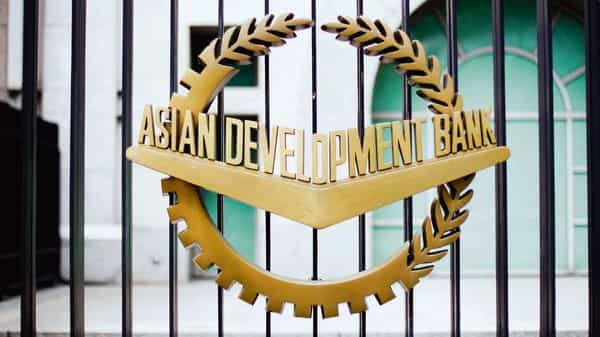Asad Aleem, the Asian Development Bank’s Deputy Country Director for Pakistan, said that projects worth two billion dollars are being planned for the country and will be finalized after a lot of work with the private and public sectors.
He was giving a speech at a meeting of the Lahore Chamber of Commerce and Industry. Senior Vice-President Mian Rehman Aziz Chan and Vice-President Haris Ateeq of the LCCI spoke at the event, as did Executive Committee Member Mardan Ali Zaidi and representatives from the Asian Development Bank (ADB) Rie Hiraoka, Sheheryar A Chaudhry, and Nasruminallah.
Asad Aleem says that projects in food security, health, irrigation, and education will be very important for Pakistan’s economic growth.
He said that in this approach, there have been discussions with real stakeholders, like the governments of Sindh and Punjab.
He also said that talks were held with the Karachi, Lahore, and Pakistan Business Council chambers of commerce and the Pakistan Business Council to get feedback from the private sector.
“Our goal is to find out what needs to be done in Pakistan,” he said.
“The ADB helps projects in developing member countries that have a positive effect on the economy and development. This is done through public and private sector operations, consulting services, and support for knowledge. The ADB team told the house that “Strategy 2030 sets the direction for ADB’s work to meet the changing needs of Asia and the Pacific.”
Senior Vice-President of the LCCI Mian Rehman Aziz Chan said that the LCCI fully understands the role that the Asian Development Bank has played in Pakistan’s economic growth since 1966. The ADB has spent over 37 billion dollars on the country’s infrastructure, energy and food security, transportation networks, social services, and other things over the past few decades.
He said that a targeted subsidy had already been asked for by the Lahore Chamber. He said that we want Pakistan to be able to take care of its own pharmaceutical needs. In this area, the private sector from around the world should work with Pakistan. This would help Pakistan get modern technologies. In Pakistan, he also pushed for the use of solar energy and farming machines.
He said that Pakistan is going through the worst economic times in its history, citing a devaluation of more than 30% in the last year, inflation of more than 13%, and a trade imbalance of more than US$39 billion in the first ten months of the current fiscal year. The State Bank’s foreign exchange reserves have been used up and are now worth about US $10 billion. The growth of the private sector is being hurt by these serious economic problems.
Chan says that Pakistan needs to keep its economy stable, get its budget under control, and keep making the business environment better by making it easier for the private sector to do business.
He said that if we want to keep our economy going, we need to encourage high-value-added exports, increase social spending, make the energy industry more cost-effective, and make structural changes. It is very important for the private sector to take part in reorganizing our economy.
He said that one of the biggest problems with the growth of the private sector is that people don’t have enough access to credit. At about 16 percent of GDP, Pakistan has the least amount of credit available to the private sector of any country in the area. Also, only 6.5% of loans from the private sector in Pakistan go to small and medium-sized businesses. He thinks this shows that Pakistan’s traditional banking system is too busy and that the private sector can’t handle the country’s current economic problems well enough.
The LCCI SVP says that when the private sector has access to financing, it can play a more active role in economic development by giving people money, jobs, goods, services, and new ideas that make their lives better and help them get out of poverty. It can also give the government the money it needs to build basic infrastructure and use tax money to deal with urgent problems and bigger development problems.
He thinks that the Private Sector Operations of the Asian Development Bank are very important in this situation because they help the private sector.
Haris Ateeq, Vice-President of the LCCI, hoped that the ADB’s Private Sector Operations would pay special attention to key areas like SMEs, women entrepreneurs, renewable energy, and skill development for the workforce.
He also said that because of the ADB’s country partnership strategy for Pakistan from 2021 to 2025, the business community has high hopes for the government of Pakistan’s vision for development, which includes improving economic management, building resilience, making the country more competitive, and developing the private sector. Haris Ateeq said that he hoped the ADB would continue to help its member states create a rich, inclusive, resilient, and sustainable Asia, with a focus on reducing extreme poverty.
He liked how the ADB helped, which was very different from what the IMF did. You can only get help from the IMF in an emergency, like a balance of payments crisis. On the other hand, the ADB helps in areas like infrastructure, urban services, the private sector, energy and food security, transportation networks, and social services over the long term.

